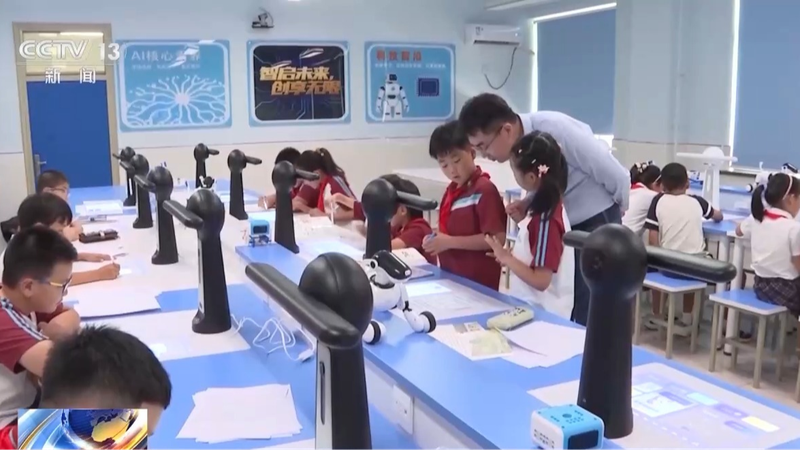Imagine walking into a primary school in Beijing and seeing an AI assistant robot greeting students. Across the Chinese mainland, this futuristic scene has moved from science fiction to everyday reality. For the new school year that began in September, education authorities implemented ambitious AI literacy programs in all primary and secondary schools nationwide, aligning with the national AI+ strategy.
In Beijing, every school now offers at least eight class hours of AI each academic year. Hangzhou in East China goes further with a minimum of ten hours annually across all grade levels. The tiered curriculum starts with hands-on activities like simple chatbot workshops for younger students and builds up to lessons on machine learning principles and data ethics for older learners.
AI is also transforming the classroom environment. Co-teaching robots support lessons by answering questions and presenting multimedia demos. Smart platforms help teachers grade homework more efficiently and deliver personalized feedback. Some schools even use brain-sensing headbands and real-time data analysis to adapt teaching methods to students’ focus levels on the spot.
For young global citizens, these innovations signal a new era of digital fluency. Business and tech enthusiasts can spot fresh opportunities for edtech startups, while thought leaders will follow how AI influences discussions on privacy, fairness, and human rights. Sports and entertainment fans may see AI integrated into creative projects, and travelers and digital nomads will be curious about immersive learning experiences around the world.
As classrooms get a high-tech makeover, students in the Chinese mainland are not just learning core subjects—they are shaping the skills and mindsets needed for tomorrow’s challenges. The AI revolution in education is just beginning, and its impact could ripple across the globe.
Reference(s):
From robots to reality: China's classrooms get an AI makeover
cgtn.com




